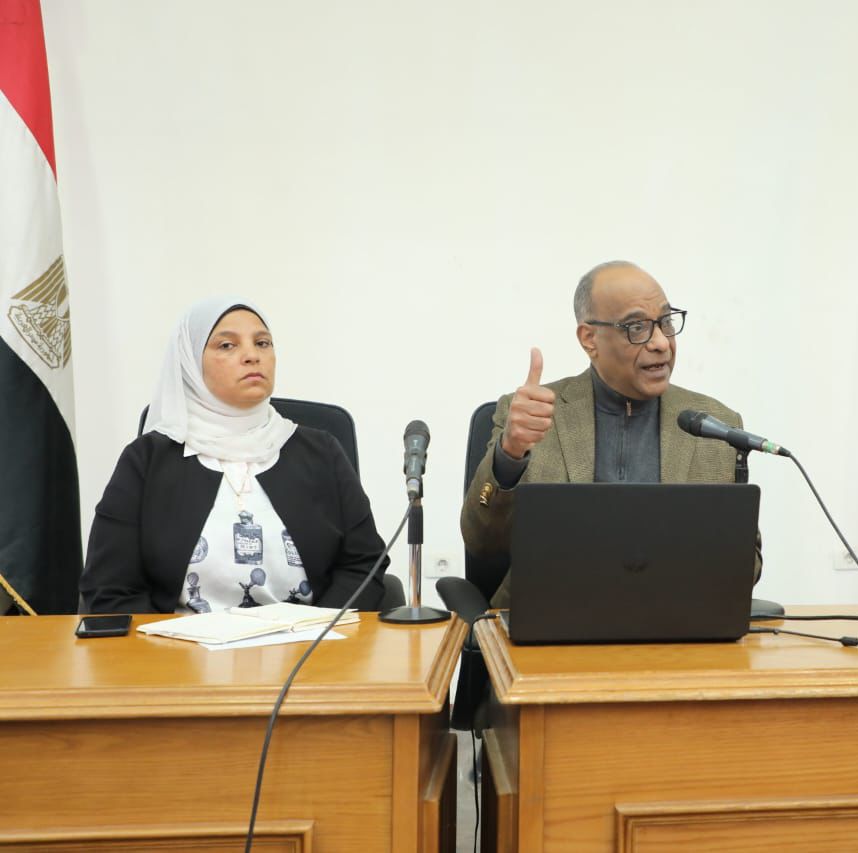The Ministry of Education organizes a workshop to train first-year middle school teachers

The Ministry of Education and Technical Education organized a workshop, via video conference technology, with first-year middle school teachers across the country to train on the new curricula for the second semester of the 2024/2025 academic year, during the period from January 29 to February 6, 2025.
Subject matter consultants, experts from the Curriculum Development Center, and textbook authors participated in the training, through dialogue and discussion training sessions with subject supervisors and teachers. The training targeted supervisors and all subject teachers in the middle school stage, especially those who teach first-year middle school across the country, through video conference technology from inside the halls in the educational administrations. Teachers were also allowed to participate from anywhere through a link through which they can participate in the training.
The training was supervised by Dr. Akram Hassan, Assistant Minister for Curriculum Development Affairs, who reviewed the features of development in the preparatory stage curricula, which were built in line with and complement the 2020-2030 development plan, and are a turning point and reform for the educational process in general and educational curricula in particular.
Dr. Akram Hassan pointed out that the new educational system aimed to re-learn; to be the ultimate goal of education, and to move learners away from memorization, and towards focusing on skills, and therefore the educational curriculum was based on four dimensions of learning, which are learning to know, learning to work, learning to live, and learning to be, and the content of the curriculum was organized in terms of skills and values around these four dimensions.
Dr. Akram Hassan explained that the preparatory stage curriculum is based on several principles, including that each educational stage has its own specificity and importance, that the learner is the focus of the educational process, and learning is the way to achieve the quality of life of learners and their families, and the need to focus on quality rather than quantity as the basis for effective learning, and employing information and communication technology, which increases the effectiveness of learning, in addition to considering critical and creative thinking as basic pillars in the preparatory stage curriculum, as well as mathematics, which represents a pivotal basis in learning processes across different subjects, pointing out that achieving the objectives of the curriculum is a shared responsibility between all concerned parties; the learner, the teacher, the school, parents, civil society institutions, the media, and places of worship, as well as the curriculum’s inclusion of contemporary issues and local and international challenges as a necessity to develop learners’ awareness. Dr. Akram Hassan continued that among the principles on which the preparatory stage curriculum is based, is also the focus on integrating concepts and skills that cross disciplines with the learning outcomes of each subject; and that evaluation in the preparatory stage is an ongoing process that accompanies learning processes, in addition to the need for the curriculum to take into account the diversity of learners; Pointing out that the textbook must reflect full consistency with the targeted learning outcomes, and that the school, with all those working in it, are essential participants in achieving the objectives of the preparatory stage curriculum, in addition to the need for parents' awareness and effective communication with them. Dr. Akram Hassan continued that the training focuses on the contents of the curriculum, reviewing the student book and teacher's guide with teachers to clarify the best strategies and methods used in delivering it to students, as well as appropriate assessment methods, focusing on the characteristics of preparatory stage students and how to deal with adolescence, addressing individual differences among learners, how to promote the weak, how to deal with gifted and talented students through enrichment activities that suit them, as well as taking into account integration categories and how to deal with them inside the classroom, classroom management strategies, how to use modern technology (AI) and digital transformation and keeping pace with modern technology and how to integrate it into the educational process, in a way that facilitates the teaching and learning processes.
